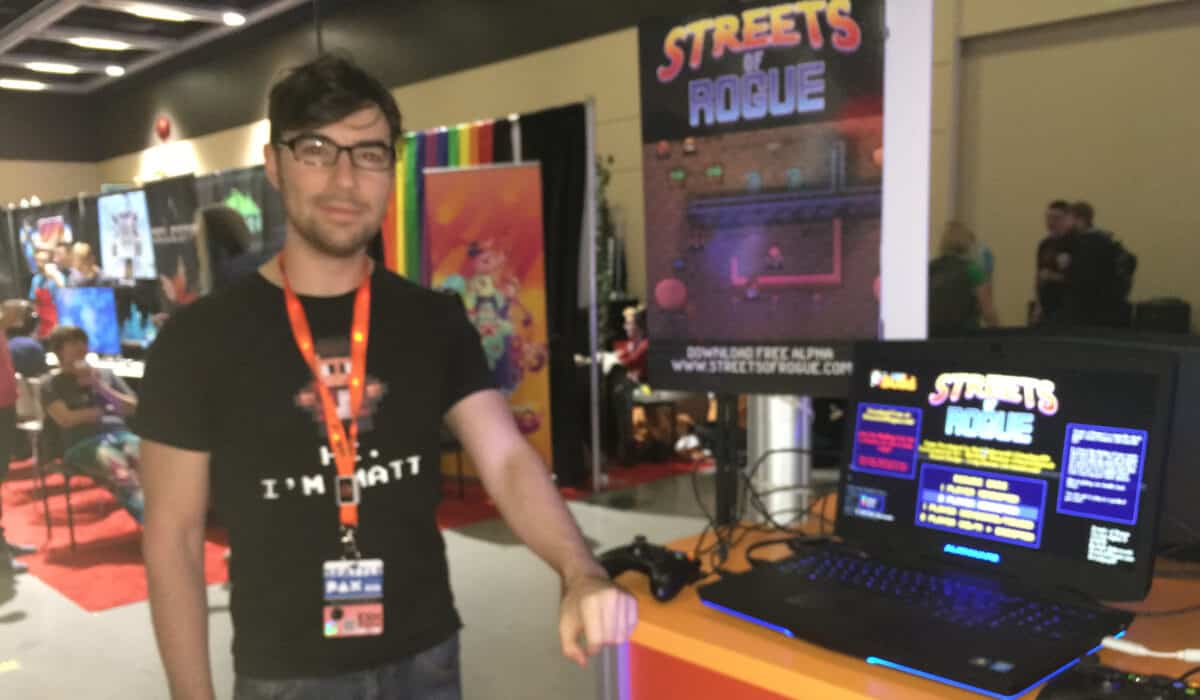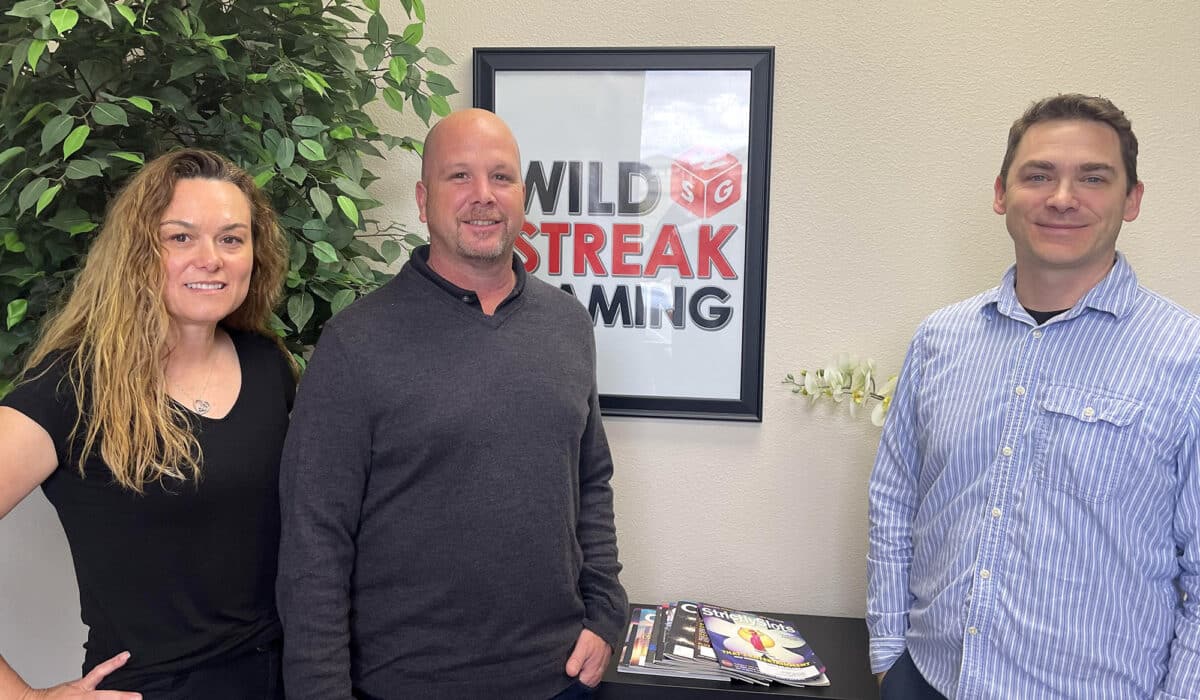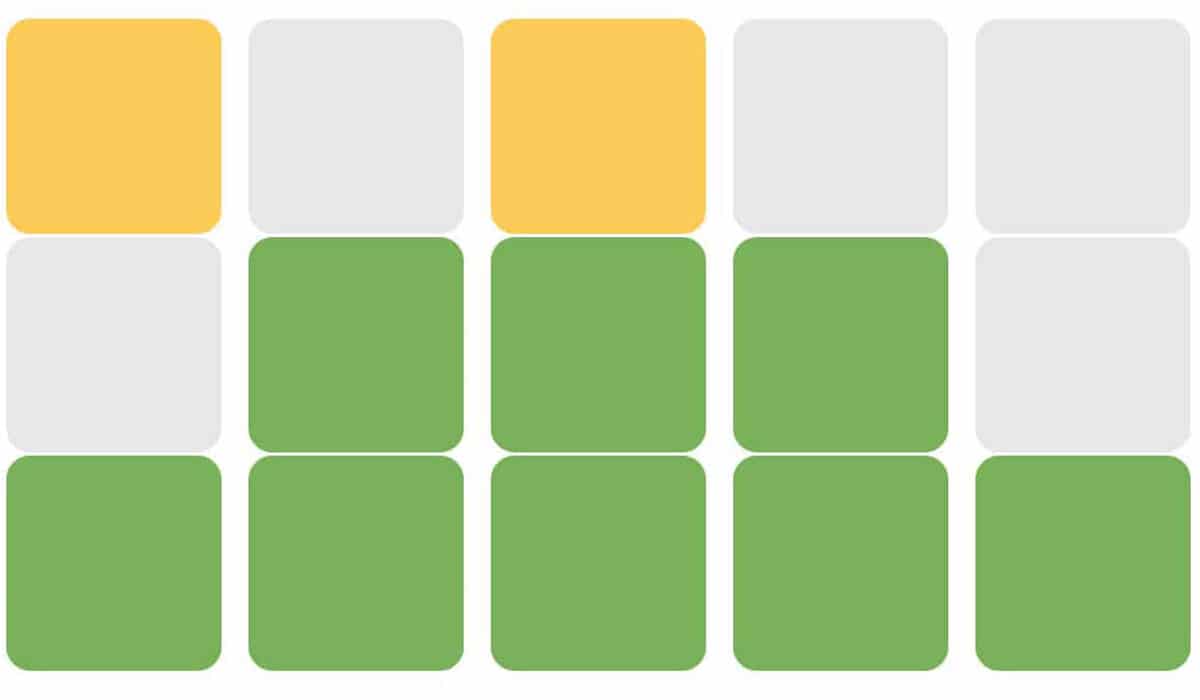It’s the quintessential game developer’s dream: to create a big-hit game that sells for millions.
And for Matt Dabrowski, creator of the popular video game Streets of Rogue, it’s also real life, ending with a $6.5 million sale. But it was far from an overnight success story.
Dabrowski has been building video games since the late ‘90s. He created his first game, BurgerJoint, during high school. After college, he spent a few years working in the games industry, but after he lost his tech job in 2015, he began developing a roguelite video game full time.
The development process for Streets of Rogue was slow, which was always Matt’s intention. He released the first alpha version of the game for free in October 2015 to get feedback, then slowly built an audience as he improved the game.
Dabrowski self-funded the build, to the cost of about $18,000. Most of that money went to contractors who created music and art for the game. Publishing and marketing costs were handled by tinyBuild, a game publisher Matt had met at Game Developers Conference (GDC) in 2016. Following the event, Matt had cold-emailed several publishers about distributing the game, and tinyBuild gave him the best offer.
After releasing an “early access” version on Steam, a platform for playing games, in March 2017, Streets of Rogue fully launched on July 12, 2019. The strategy of developing the game around a core group of players paid off; by the time it went on sale, it had an audience that provided initial sales and positive reviews.
That runway turned into a 96% positive rating out of over 15,800 ratings on Steam and a high aggregate score on gaming review site Metacritic.
Since then, Streets of Rogue has sold around 1 million copies across all platforms, generating a total gross revenue in the range of $8 million. Though, Dabrowsk said, it didn’t exactly fill his pockets. “The bulk of this money went to Steam/Xbox/Playstation/Nintendo storefronts, tinyBuild, taxes, and so the actual amount taken in by [my company] DogHelm was significantly less,” he said.
How Streets of Rogue’s acquisition offer came about
Then, tinyBuild made an unexpected proposal.
While Dabrowski was never looking to sell, he had formed a good relationship with his distributor. So when tinyBuild came to him with the idea of buying the intellectual property (IP) for Streets of Rogue, he had a decision to make.
A sale would allow him to continue working on the franchise, including an upcoming sequel, without disrupting his workflow, give him access to further support from tinyBuild and benefit him significantly from a financial standpoint.
For tinyBuild, the acquisition effort was part of its strategy to elevate its core franchises by focusing on IP ownership. tinyBuild went public in March 2021, a rare feat for an indie game developer and distributor, after a $49 million funding round valued the company at $600 million. The company had already made several other acquisitions that year, and with Streets of Rogue being the highest-rated title in its portfolio, the move to bring it in-house made sense.
For Dabrowski, It turned out that deciding to sell was the easy part. Working with lawyers and ironing out the final contract proved a lengthy, costly and not-always-pleasant process, he said.
Discussions began in the summer of 2020 but only kicked into gear once tinyBuild went public in March 2021. Matt paid legal fees to his lawyer and his team as the sale process proceeded, and the longer it took, the more he paid. Because he went through many revisions of the contract, the total legal cost was upwards of $70,000. He relied heavily on this team, who specialised in video game law, to make sure he got the best possible outcome, he said.
After two-and-a-half months of negotiations, both parties agreed to a $6.5 million deal, which was finalized in June 2021. The fee was split between cash and newly issued shares in tinyBuild, plus a percentage of future game revenue, according to a press release through the London Stock Exchange. Some payouts are subject to certain operational targets being met with the current game and follow-up sequels, Dabrowski said.
While tinyBuild bought the game IP through what’s known as an asset sale, Dabrowski retained his umbrella company DogHelm Studios, so he can continue to release other games. This deal structure allows Matt to continue what he had planned next: working on the eagerly anticipated sequel to his breakout game.


